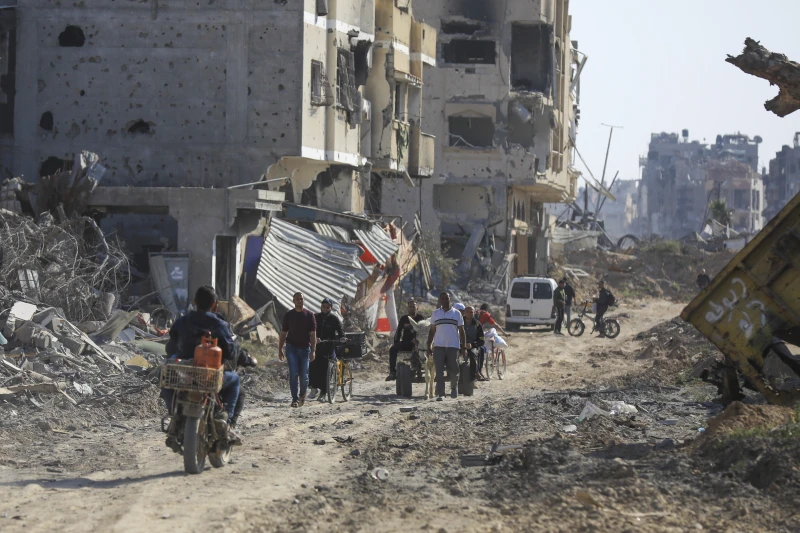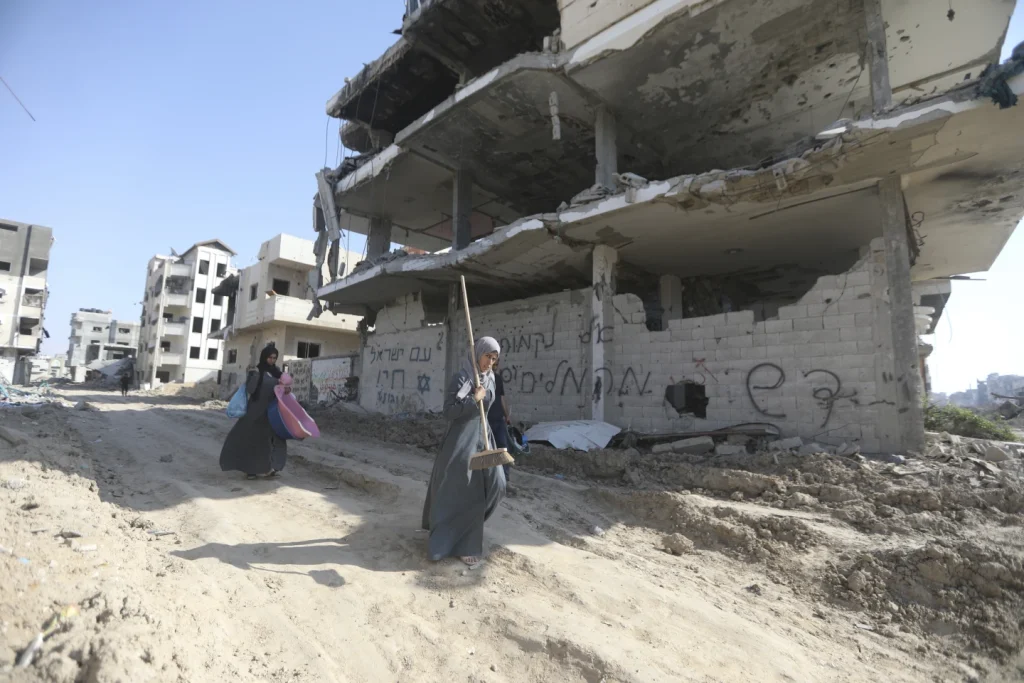The recent announcement by Israel’s military regarding the withdrawal of its forces from the southern Gaza city of Khan Younis marks a significant development in the ongoing conflict between Israel and the Hamas militant group.
This move not only signifies the conclusion of a crucial phase in Israel’s ground offensive but also indicates a strategic shift in the military operations as the focus now turns towards Hamas’ last stronghold, Rafah.
The decision to withdraw troops from Khan Younis comes at a time when global attention is increasingly focused on the escalating violence in Gaza, with concerns mounting over the humanitarian impact on the civilian population.
With Rafah being home to more than half of Gaza’s population, the prospect of an offensive in this densely populated area has raised alarm bells internationally, prompting calls for a credible plan to safeguard civilians from harm.
Despite the withdrawal from Khan Younis, Israeli defense officials have clarified that this move is part of a larger military strategy, with troops regrouping and preparing for operations in Rafah.
It is evident that Israel remains committed to targeting Hamas strongholds and key figures, as indicated by the presence of a significant force in Gaza to carry out precise operations, including in Khan Younis, the hometown of Hamas leader Yehya Sinwar.
The conflict, which began on October 7 with a militant incursion into southern Israel by Hamas-led forces resulting in casualties and hostage-taking, has now entered its sixth month.
The toll of the war on both sides has been devastating, with civilian lives lost and families torn apart by the violence. The recent developments underscore the complexity and gravity of the situation, with no immediate end in sight to the hostilities.
The news of the death of Palestinian prisoner Walid Daqa, convicted in the 1984 killing of an Israeli soldier, adds another layer of complexity to the conflict.
Daqa’s passing due to cancer while in Israeli custody highlights the sensitive issue of Palestinian prisoners held by Israel, a subject that holds deep significance for Palestinians and can potentially inflame tensions further amid the ongoing war in Gaza.
As the conflict continues to unfold, the fate of the prisoners remains a critical aspect to monitor, especially in light of potential negotiations between Israel and Hamas for a ceasefire and the release of hostages.
The intricate interplay of military operations, political negotiations, and humanitarian concerns underscores the multifaceted nature of the Gaza conflict and the challenges involved in finding a lasting resolution.
In conclusion, Israel’s military withdrawal from Khan Younis represents a pivotal moment in the Gaza conflict, signaling a shift in focus towards Rafah and underscoring the complexities and human toll of the ongoing hostilities.
As efforts to reach a ceasefire and address the plight of prisoners intensify, the need for a comprehensive and sustainable resolution to the conflict becomes increasingly urgent for the well-being of all those affected by the violence in the region.
In the heart of the tumultuous Israel-Palestine conflict, recent events have once again brought to light the deep-seated animosities and complexities that have plagued the region for decades.
The actions and reactions of both Israeli and Palestinian factions have not only intensified the conflict but have also raised questions about the humanitarian aspects and the prospects for peace in the region.
This essay delves into the recent incidents involving prisoner exchanges, military movements, and hostage situations, shedding light on the multifaceted nature of the conflict and the challenges it poses for all parties involved.
The exclusion of Daqa, a high-risk prisoner, from previous exchange deals by Israel has sparked controversy and accusations of deliberate medical negligence leading to his death by Hamas.
The conflicting narratives surrounding Daqa’s demise highlight the deep-rooted distrust and enmity between the two sides. Israel’s withdrawal of troops from southern Gaza, while seen as a strategic move, underscores the ongoing military engagements and the precarious nature of the situation on the ground.
The impending evacuation of Rafah and the continued targeted operations signal a protracted conflict with no immediate resolution in sight.
The discovery of the body of Elad Katzir, a farmer held hostage in Gaza, has reignited calls for action and negotiations to secure the release of remaining hostages.
The emotional plea from Katzir’s sister underscores the human toll of the conflict and the urgency for a diplomatic solution.
The divisions within Israeli society regarding the government’s handling of the crisis further complicate the already intricate political landscape, adding another layer of complexity to the conflict.
The events described above paint a grim picture of the Israel-Palestine conflict, characterized by violence, mistrust, and suffering on both sides.
The humanitarian crisis unfolding in Gaza, with shattered buildings, casualties, and hostages, serves as a stark reminder of the urgent need for a sustainable peace agreement that addresses the root causes of the conflict.
The international community’s role in mediating and facilitating dialogue between the conflicting parties remains crucial in achieving a lasting resolution.
As the conflict continues to escalate and claim lives, it is imperative for all stakeholders to prioritize dialogue, empathy, and compromise in seeking a way forward.
The cycle of violence and retribution must be broken, and a comprehensive peace agreement that addresses the legitimate grievances and aspirations of both Israelis and Palestinians must be pursued with unwavering determination.

Only through genuine efforts towards reconciliation and mutual understanding can the region move towards a future of coexistence, stability, and prosperity for all its inhabitants.
In conclusion, the recent developments in the Israel-Palestine conflict underscore the urgent need for a concerted international effort to bring an end to the cycle of violence and pave the way for a just and lasting peace.
The challenges ahead are daunting, but the stakes are too high to ignore. It is time for all parties to rise above their differences, embrace dialogue and diplomacy, and work towards a future where peace and security prevail over conflict and suffering.

